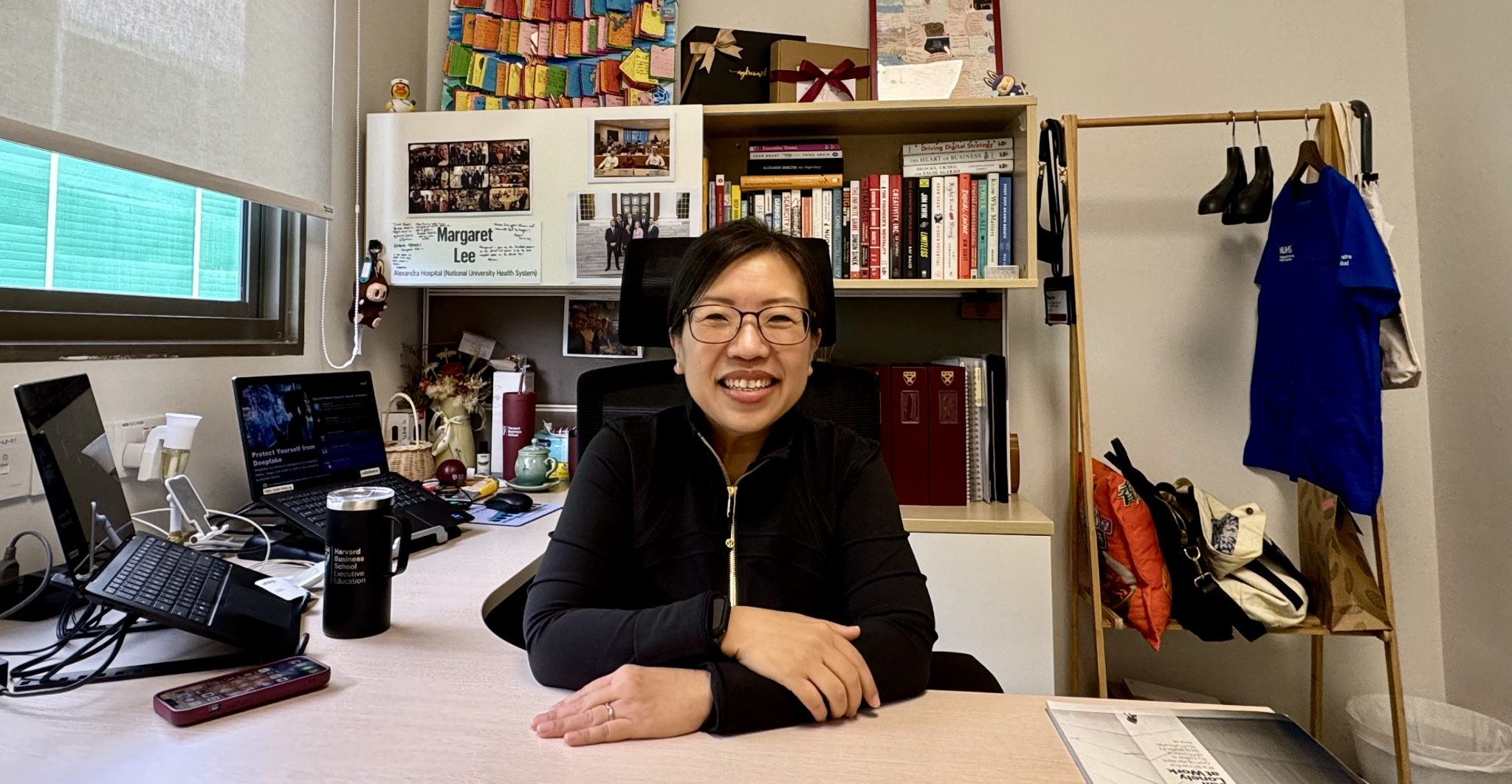
Friendship-mentoring is "an approach to mentoring where mentor and mentoree(s) are first and foremost friends", says Dr Tan Soo-Inn, who has been mentoring in some form for 40 years. Photo from graceworks.com.sg.
Have you come across the word friendtor? Came across it recently. Here is one definition:
A friendtorship is an informal peer mentor relationship between two people who work in different, but complementary domains. Friendtors connect primarily by shared interests and don’t need to have the same professional background or a previously formed personal connection and likely don’t work with the same group of colleagues.
Similar to peer mentorship, friendtors set aside time to meet and talk about their work, share skills (co-learning), and discuss opportunities for professional or creative collaboration. Friendtor dyads might look like a social worker and a songwriter, a chaplain and a medical informaticist, or a clinician and a patient advocate.
Just as there are many definitions of mentorship, there are also many definitions of friendtorship. The above definition starts with friends who become peer mentors.
Others start with more traditional mentoring relationships where the mentors become friends in the end.
Seeking to guide and grow
I became curious about the relationship between mentoring and friendship because of a comment that a friend made. He is in one of the groups I am training to be mentors but at the same time he was doing an online course on mentoring and coaching.
He said one key difference between what he is learning with me and what he is learning from his online course is the place of self-disclosure in the mentoring process.
Jesus told a lot of stories even as He also asked a lot of questions.
In his online course, he is told that the mentor must be as unobtrusive as possible and is warned that his or her own stories must not intrude into the mentoring experience. This reminds me more of spiritual direction and the practice of coaching.
I aIso believe that the first thing mentors need to do is to listen. They are to draw out the stories of the mentorees so that the latter can discern the hand of God in their lives.
Here, questions are key as they help the mentorees identify and process their own journeys.
However we also say that, where appropriate, the mentor can judiciously share stories from their lives that may help the mentoree experience a breakthrough in grasping certain principles.
We note that Jesus told a lot of stories even as He also asked a lot of questions. We also believe that modelling is a key part of Christian mentoring and that is helped when the mentoree knows something of the life of the mentor.
Even management literature seems to understand this difference between mentoring and coaching. Nahla Davies writes:
Modelling is a key part of Christian mentoring.
Mentors import wisdom to their proteges through story-telling and past experiences. On the other hand, coaches are focused on reaching goals and creating outcomes. (Nahla Davies, “Do You Need A Mentor Or A Coach?” SUCCESS [January/February, 2022], 40)
We are not here trying to say which method is right and better. Relational transformation can take place in many ways and all approaches done well can be of help to those seeking growth and guidance.
But as I reflect more on my own practice of mentoring, I realise it is a more relational approach.
I have been doing some form of mentoring for about 40 years now and realise that, when I walk with people in some mentoring context, I want to be their friend.
After all they are not my clients. They are my brothers and sisters in Christ.
One of the greatest joys of my years in ministry are the many great friends I have because I had the privilege to walk with them.
Disciples as well as friends
Recently, I have been reflecting on John 15 afresh – an incredible chapter where Jesus calls His disciples friends.
Jesus was their Lord and leader but He also related to His disciples at the intimate level of friendship.
The distance between me and the people I mentor is nowhere near the distance between Jesus and His disciples. I have a much shorter distance to traverse to become friends with my mentorees.
But Jesus also made it clear that Christian friendship has to be defined by the Cross, the willingness to lay down our lives for our friends.
Jesus was their Lord and leader but He also related to His disciples at the intimate level of friendship.
Therefore, if I had to put a name to how I do mentoring, it would be friendship-mentoring.
Still can’t get used to the term friendtor. Feels like some kind of etymological chimera and it just doesn’t flow nicely off the tongue. Instead let me attempt to define friendship-mentoring:
An approach to mentoring where mentor and mentoree(s) are first and foremost friends. While the mentor may start out as the primary guide, the relationship grows into one where there is mutual guidance as all seek to help each other grow in Christlikeness with the help of their common friend, Jesus.
Friendship-mentoring is also one expression of spiritual friendship.
Spiritual friends are those soul mates who share our spiritual longings and help us become our best selves. (Mary DeTurris Poust, Walking Together [Notre Dame, IND: Ave Maria Press, 2010], 2)
I think I will invest the next chapter of my life unpacking what this all may mean.
This reflection was first published by Graceworks, and is republished with permission.
MORE STORIES ON FRIENDSHIP-MENTORING:
We are an independent, non-profit organisation that relies on the generosity of our readers, such as yourself, to continue serving the kingdom. Every dollar donated goes directly back into our editorial coverage.
Would you consider partnering with us in our kingdom work by supporting us financially, either as a one-off donation, or a recurring pledge?
Support Salt&Light



